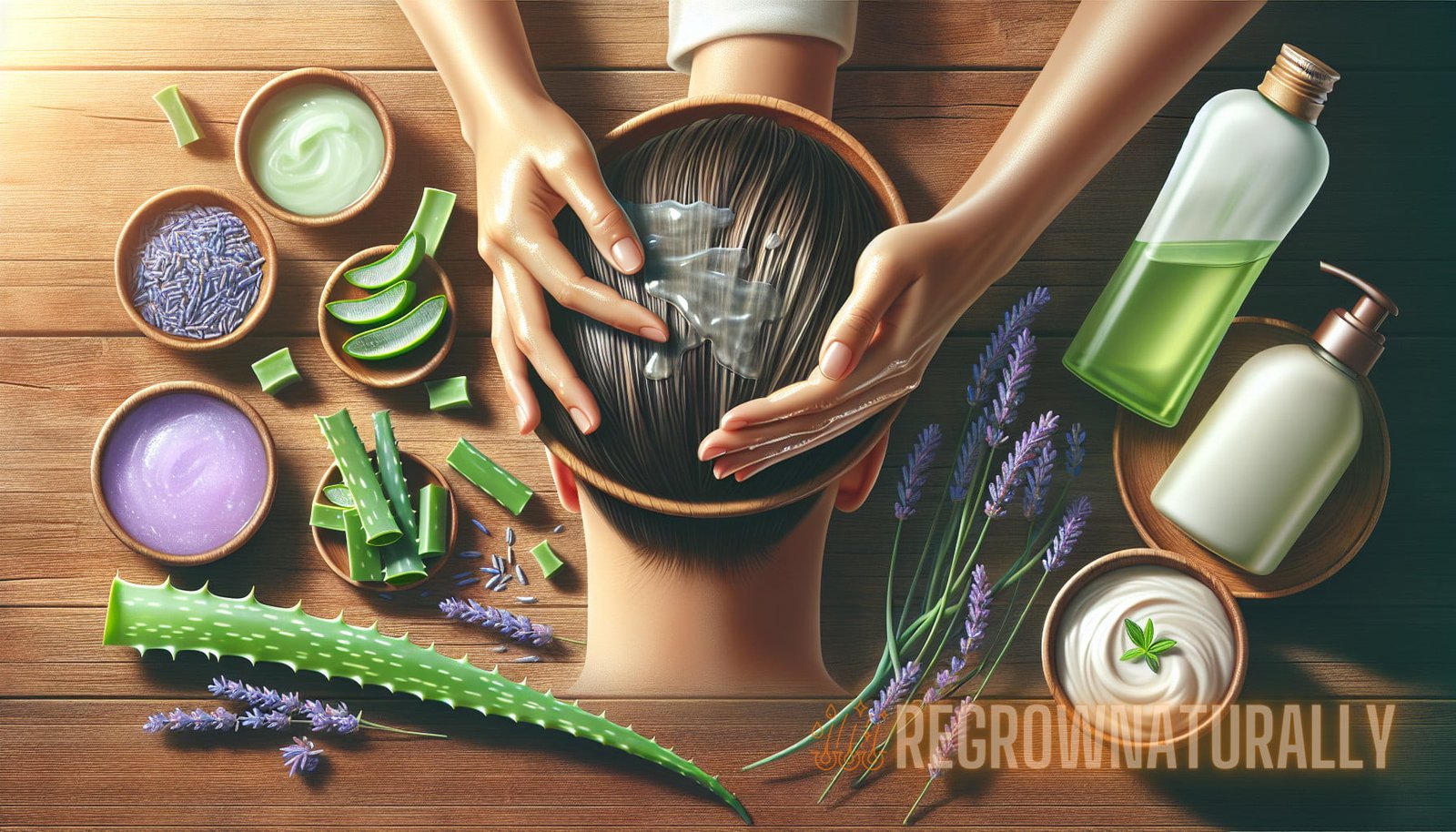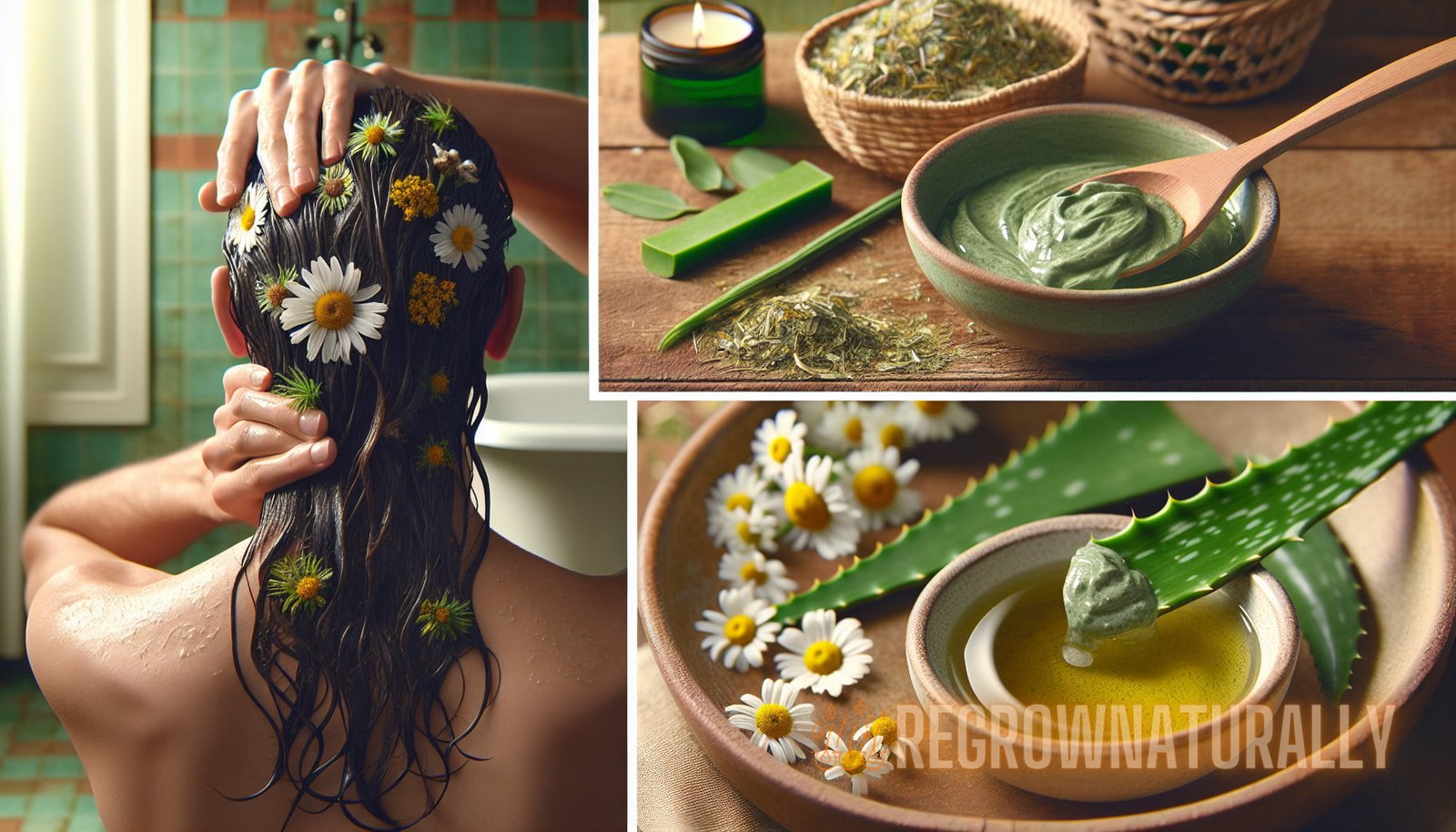Introduction to Hydrating Herbs for Hair and Scalp Vitality
Water is the ultimate source of life, and it plays a crucial role in maintaining our health and well-being. This is particularly true when it comes to our hair and scalp. Adequate hydration is essential for promoting healthy hair growth, preventing breakage, and maintaining a balanced scalp. While drinking water is vital for overall hydration, there are also specific herbs and natural remedies that can help boost the hydration of our hair and scalp, providing them with the nourishment they need to thrive.
The Importance of Hydration for Hair and Scalp Health
Our hair and scalp are constantly exposed to environmental stressors, such as sun exposure, pollution, and chemical treatments. These factors can lead to dryness, brittleness, and other issues that affect the health and appearance of our hair. Just like our skin, our scalp contains oil glands that produce sebum, which helps moisturize and protect our hair. When our scalp is not properly hydrated, it can lead to an imbalance in sebum production, resulting in either dryness or excessive oiliness.
Hydration is essential for maintaining the moisture balance of our hair and scalp. When our hair is well-hydrated, it becomes more flexible, resilient, and less prone to breakage. Hydrated hair also appears shinier and smoother, enhancing its overall appearance and manageability. In addition, a well-hydrated scalp promotes a healthier environment for hair growth, reducing the risk of scalp conditions such as dandruff or excessive itching.
The Role of Herbs in Hydrating Hair and Scalp
Nature provides us with a wide range of herbs that have powerful hydrating properties. These herbs contain essential nutrients, antioxidants, and other compounds that can penetrate the hair shaft and nourish the scalp, promoting long-lasting hydration. Incorporating these herbs into your hair care routine can help address dryness, improve the health of your hair, and achieve optimal scalp vitality.
Popular Hydrating Herbs for Hair and Scalp Health
Aloe Vera
Learn more about the powerful benefits of Aloe Vera for hair regrowth and scalp healing.
Aloe vera is a succulent plant that has been used for centuries for its healing properties. It is widely known for its hydrating and moisturizing effects on the skin, but it is also highly beneficial for hair and scalp health. Aloe vera contains a gel-like substance that is rich in vitamins, minerals, and amino acids, which promote hydration and strengthen hair follicles. Applying aloe vera gel directly to the scalp can help soothe dryness, reduce inflammation, and enhance the overall health of the hair and scalp.

Aloe vera gel can be used as a standalone treatment by massaging it into the scalp and leaving it on for a few hours before rinsing it off. Alternatively, it can be added to homemade hair masks, conditioners, or shampoos to boost their hydrating properties.
Lavender
Lavender is a fragrant herb that is commonly used in aromatherapy and skincare products. It has soothing and calming properties that can help alleviate stress and promote relaxation. Lavender also contains essential oils that have hydrating effects on the hair and scalp. It helps to restore moisture, balance oil production, and improve the overall health of the scalp.
One way to incorporate lavender into your hair care routine is by using lavender-infused oils or lavender essential oil. You can massage these oils into your scalp, leave them on for a few hours or overnight, and then wash them off. Alternatively, you can add a few drops of lavender essential oil to your shampoo or conditioner for added hydration.
Marshmallow Root
Marshmallow root is a lesser-known herb that is highly beneficial for hair hydration. It contains mucilage, a gel-like substance that has emollient and moisturizing properties. Mucilage helps to lock in moisture and prevent water loss, making it an excellent choice for dry or brittle hair.
To use marshmallow root for hair hydration, you can create a decoction by boiling the root in water and allowing it to cool. This decoction can be used as a hair rinse or incorporated into homemade hair masks and conditioners. Marshmallow root can also be found in some commercial hair care products, such as shampoos and leave-in conditioners.
Burdock Root
Burdock root is a medicinal herb that has been used for centuries in traditional Chinese medicine. It is rich in vitamins, minerals, and antioxidants that promote scalp health and hair hydration. Burdock root is particularly beneficial for addressing scalp conditions such as dandruff and dryness.
You can incorporate burdock root into your hair care routine by using it as a rinse or in combination with other herbs. To create a burdock root rinse, steep the root in hot water, allow it to cool, and then pour it over your hair after shampooing. Leave it on for a few minutes before rinsing it off. You can also find burdock root extract or oil in some hair care products.
How to Use Hydrating Herbs for Optimal Hair and Scalp Health
Now that you are familiar with some of the most popular hydrating herbs, let’s explore how to incorporate them into your hair care routine for optimal results.

Homemade Herbal Hair Masks
One of the most effective ways to harness the power of hydrating herbs is by creating homemade hair masks. Hair masks are deep-conditioning treatments that can help restore moisture, repair damage, and promote healthy hair growth. Here’s a simple recipe to get you started:
- In a bowl, combine equal parts aloe vera gel, coconut oil, and honey.
- Add a few drops of lavender essential oil for added hydration and a pleasant fragrance.
- Apply the mixture to your hair, focusing on the ends and any areas that are particularly dry or damaged.
- Cover your hair with a shower cap or towel, and leave the mask on for at least 30 minutes or overnight for maximum hydration.
- Rinse the mask out thoroughly with warm water, followed by your regular shampoo and conditioner.
Infused Oils as Scalp Treatments
Another way to incorporate hydrating herbs into your hair care routine is by using infused oils as scalp treatments. Infused oils are made by steeping herbs in carrier oils (such as coconut oil, jojoba oil, or olive oil) to extract their beneficial properties. Here’s how you can make your own infused oil:
- Fill a jar with the herb of your choice (such as lavender, marshmallow root, or burdock root).
- Fill the jar with your chosen carrier oil, making sure to completely cover the herbs.
- Seal the jar tightly and place it in a warm, sunny spot for 4-6 weeks to allow the herbs to infuse into the oil.
- Strain the infused oil through a cheesecloth or fine mesh strainer to remove any plant material.
- Transfer the infused oil to a clean, dark-colored bottle for storage.
To use the infused oil as a scalp treatment, simply massage a small amount into your scalp, focusing on any areas that are particularly dry or itchy. Leave the oil on for at least 30 minutes or overnight, then wash it out with warm water and shampoo.
Conclusion
Hydrating herbs offer a natural and effective way to nourish and maintain the health of your hair and scalp. Incorporating herbs such as aloe vera, lavender, marshmallow root, and burdock root into your hair care routine can help promote hydration, balance oil production, and improve the overall condition of your hair. Whether you choose to create homemade hair masks, use infused oils as scalp treatments, or explore other herbal remedies, these hydrating herbs can make a noticeable difference in the health and vitality of your hair and scalp.
References:
- Aloe Vera: https://en.wikipedia.org/wiki/Aloe_vera


